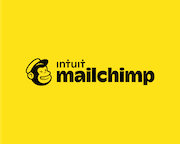Looking to find the best personalization software for your business? Look no further. Our comprehensive buyers guide will help you navigate the market and make an informed decision. Learn about the features and benefits and choose the perfect solution to take your business to the next level.
Welcome to the world of personalization software, where businesses thrive by providing unique and tailored experiences to their customers. The modern consumer is no longer satisfied with a one-size-fits-all approach and expects brands to recognize their individuality. This is where personalization software comes into play. It allows businesses to collect and analyze customer data, create user profiles, and deliver personalized content, product recommendations, and targeted advertisements. However, with a wide range of options available on the market, how do you know which solution is the right fit for your business? In this buyer's guide, we'll explore the key features, benefits, and considerations to help you make a wise decision.
What is personalization software?
This is a tool that enables businesses to tailor their offerings to their customers' needs and preferences. Imagine walking into a store, and the salesperson knows exactly what you're looking for. This feeling of being understood and catered to is what personalization software aims to achieve. By collecting data on customers' behavior, it identifies patterns and preferences that help businesses create personalized experiences for their customers. As a business, having a competitive edge over others has become crucial for sustainable success.
Here are some common use cases of this tool:
- E-commerce websites can offer product recommendations based on a customer's browsing and purchase history using this solution.
- It allows content websites can suggest articles based on a user's previously read content.
- Travel websites can provide travel recommendations based on a user's past travel history, budget, and preferred locations.
- Retail stores can offer personalized promotions based on a customer's purchase history.
Personalization software is used by a wide range of industries, including retail, e-commerce, travel, and entertainment. Any company that aims to improve customer loyalty and increase customer engagement can benefit from personalization technology. Even small businesses can make use of it to offer unique and tailored experiences to their customers.
What are the benefits of investing in a personalization program?
This solution is a game-changer for businesses looking to enhance their customer experience. By providing tailored content, recommendations, and offers to individuals based on their interests, behaviors, and preferences, it has become an essential tool for businesses of all sizes. Here are some of its main benefits:
- Increased customer engagement: It enables businesses to engage with their customers on a more personal level, leading to higher levels of engagement and loyalty.
- Improved customer experience: By providing personalized recommendations and offers, businesses can improve their customers' experience while interacting with their brand, leading to increased customer satisfaction and loyalty.
- Enhanced marketing efficiency: Personalized marketing messages and campaigns have a much higher success rate than generic ones, leading to increased efficiency and a higher ROI.
- Higher conversion rates: The platform can help businesses increase their conversion rates by delivering customized offers and recommendations that are more likely to resonate with their customers.
- Better data-driven decision-making: By collecting and analyzing customer data, personalization technology can provide businesses with valuable insights into their customers' behaviors and preferences, helping them to make data-driven decisions that can improve their overall performance.
10 key features of personalization software
Here are the 10 common features of this essential system:
1. User profiles: All personalization systems should be able to create and store individual user profiles. These profiles contain information such as the user's name, location, interests, and previous interactions with the business.
2. Recommendation engines: Many personalization software solutions include a recommendation engine that provides customers with personalized product recommendations based on their previous interactions with the business.
3. Behavioral targeting: The platform can track a user's behavior on a website or application and use that information to present them with tailored content.
4. A/B testing: Some of them offer A/B testing capabilities, allowing businesses to test different versions of a website or application to determine which one performs better with different users.
5. Dynamic content: A personalization tool can enable the delivery of dynamic content - relevant content that changes automatically based on a user's behavior or preferences.
6. Real-time personalization: Some offer real-time personalization capabilities, allowing businesses to deliver tailored content to users in real-time as they navigate a website or application.
7. Multi-channel personalization: Many businesses operate across multiple channels. The software can help businesses deliver a consistent, personalized experience across all channels, including websites, applications, email, and social media.
8. Third-party integrations: It can integrate with third-party tools such as customer relationship management (CRM) software or marketing automation tools to enhance its capabilities.
9. Reporting and analytics: Businesses need to be able to measure the effectiveness of their personalization efforts. Personalization software tools often include built-in reporting and analytics capabilities to help businesses track performance.
10. Customization and flexibility: Finally, a personalization package should offer customization and flexibility to suit different business needs. Businesses should be able to tailor the personalization software to their specific requirements, whether that be in terms of the user interface, data integration, or specific personalization features.
Key considerations when adopting a personalization solution
The right software can boost engagement, customer satisfaction, and ultimately, sales. In-house marketers who are personalizing their web experiences on average achieve a 19% uplift in sales. Here are some key factors that businesses should consider when purchasing this program:
1. Data management: Personalization software depends on data. It's essential to select one that can integrate with your company's existing data sources. Data synchronization and integration will help personalize your customers' experience effectively.
2. Ease of use: An application that is easy to use can significantly reduce the learning curve and enable quick adoption. Your team should easily maneuver the functionalities of the system. The more straightforward the app is, the faster the team can leverage it for personalization and better user experiences.
3. Flexibility: A solution that can be tailored to the specific needs of your business is vital. When selecting one, it is necessary to consider how each feature aligns with your objectives and priorities. Such a platforms should provide the flexibility to tailor the customer experience to your brand, personalized analytics, and customer demographics.
4. Integration capabilities: The best personalization package can easily integrate with other software that your organization uses daily. With an integration-friendly, you can scale up your personalization efforts.
5. Scalability: Your business may experience growth, so it is essential that you invest in a solution that will scale as your business grows. It should be able to accommodate more customer data, support more business processes and integrate with a more extensive range of software.
6. Support: A comprehensive personalization tool should have excellent support for its users. The vendor should offer helpful and easy-to-understand documentation about the application, customer support, and demonstrate knowledge required for customization, integrations, and deployments.
Trends shaping personalization technology today
In 2024 and beyond, personalization software trends are set to revolutionize the way brands interact with their customers. Content that is personalized is the top priority for businesses in the coming years. Customers' desire for tailored experiences is driving the adoption of this solution.
AI-powered content is another trend that will take center stage. Customizing content using artificial intelligence will enable brands to create unique content that resonates with their audience.
Interactive content is also an essential trend for businesses, with an increasing demand for immersive experiences. Using interactive elements in your content can drive engagement and increase brand loyalty.
Data privacy is a hot-button issue that will be a major concern for businesses. Brands must ensure that their personalization efforts do not violate data privacy regulations. Keeping up with these trends will enable businesses to enhance the customer experience, deepen customer relationships, and drive sales growth.
Conclusion
A personalization platform is a powerful tool for businesses to enhance customer engagement, satisfaction, and loyalty. By tailoring the customer experience to individual needs, businesses can build stronger relationships, leading to increased sales and revenue. Gartner predicts that B2B sellers that incorporate personalization into digital commerce will realize revenue increases up to 15%. This software provides companies with a competitive advantage by delivering the right products and services, thereby improving efficiency and driving overall success in the market.






